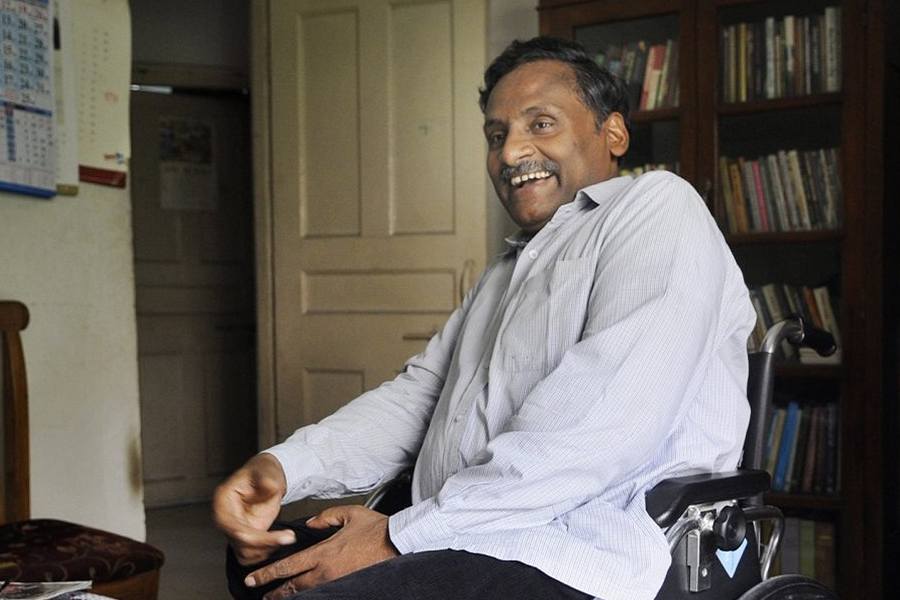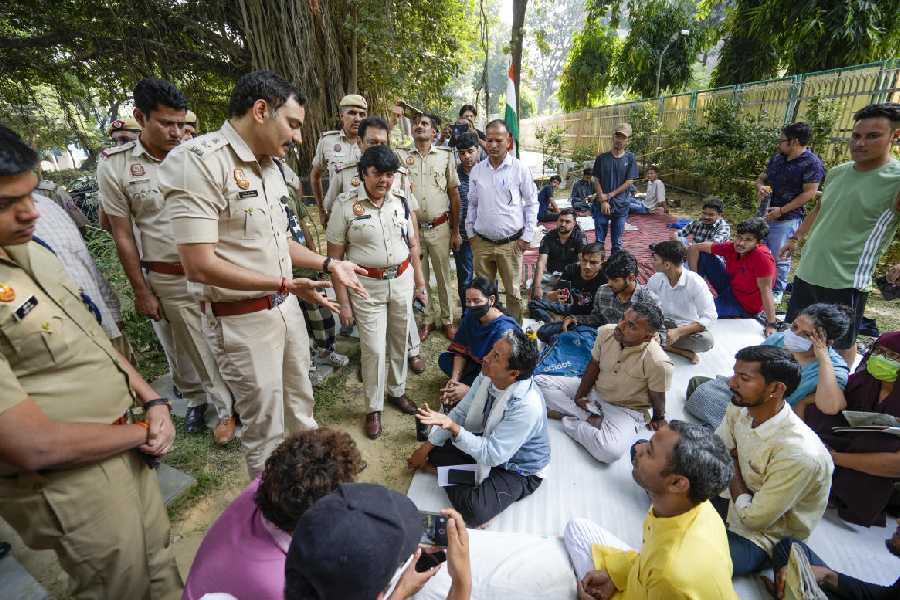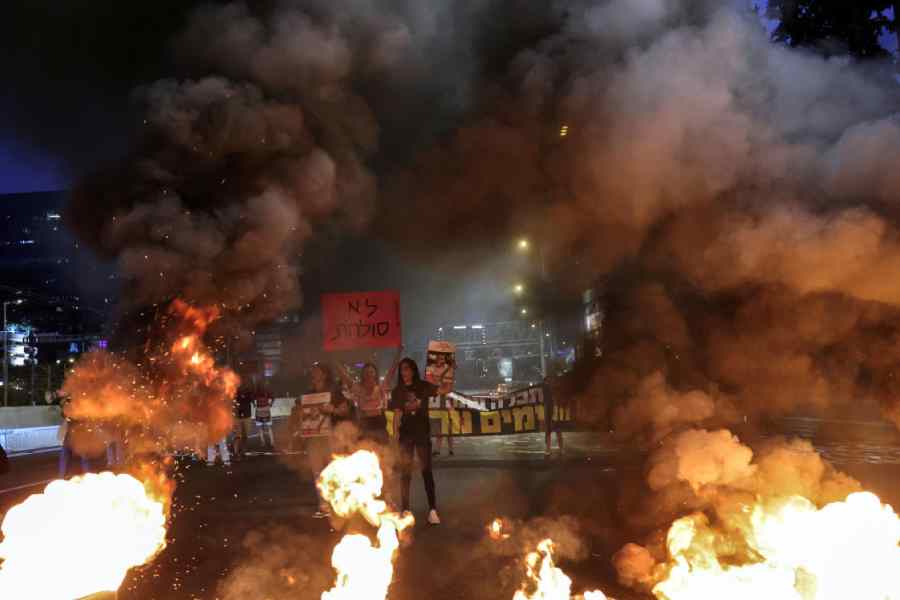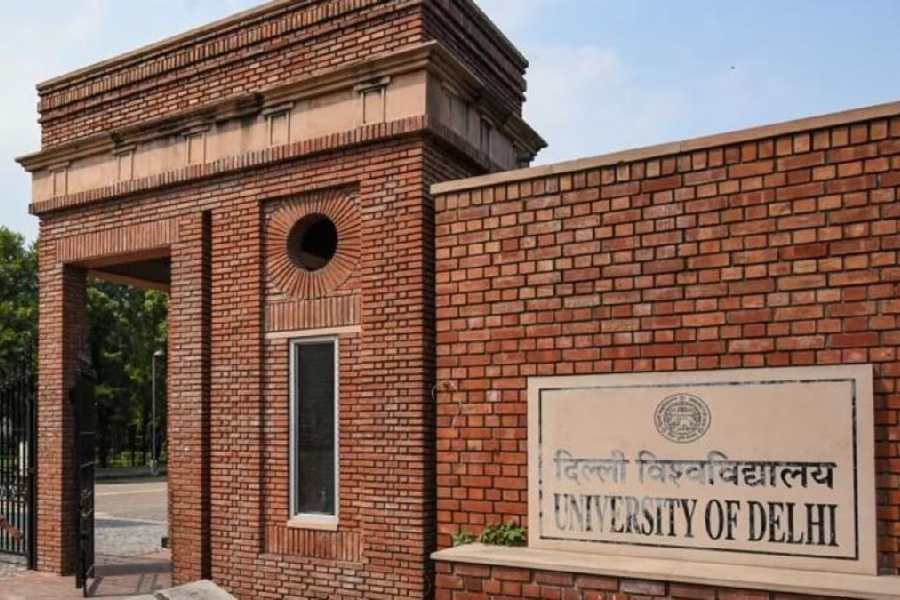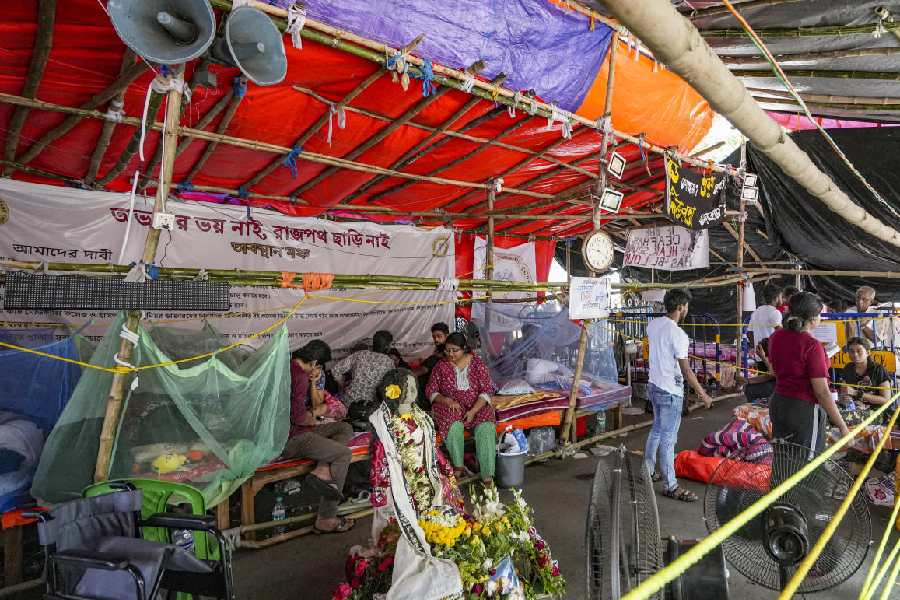Former Delhi University professor Gokarakonda Naga Saibaba, a paraplegic acquitted seven months ago after spending a decade in jail on terror charges, died on Saturday of complications following gall bladder surgery at a Hyderabad hospital. He was 57.
His supporters compared his death to that of Stan Swamy, an 84-year-old Jesuit, rights activist and Parkinson’s patient who had died in judicial custody in 2021 in Mumbai while awaiting trial in a similar case relating to alleged Maoist links.
"He (Saibaba) was denied bail for years. He was denied medical treatment urgently required for a person with such acute disabilities," the CPM said.
"His was a life dedicated to fighting for justice, facing torture with courage. The responsibility for his death lies with the (Narendra) Modi government."
A polio patient, Saibaba was paralysed below his waist and developed life-threatening complications in his Nagpur prison that he blamed on poor living conditions and inadequate medical treatment. Saibaba had gone on hunger strike several times in protest.
UN special rapporteurs had repeatedly called for his release on health grounds.
Actor Swara Bhasker posted on X: "First Father Stan Swamy & now Prof. Saibaba! It’s criminal what the Indian State gets away with!! This man with 90% disabilities was wrongly imprisoned & spent 10 years in prison despite being acquitted by the Bombay High Court! Honestly, shame on every single cowardly member of India’s rotten judicial system!"
CPIML Liberation general secretary Dipankar Bhattacharya flagged the anomalies of the criminal justice system, underlining the contrasting treatments of Saibaba and the murder-and-rape convict Gurmeet Ram Rahim, who has received frequent paroles from the BJP government in Haryana.
"Professor GN Saibaba lost his mother while he was in jail. The system which grants frequent paroles to the Ram Rahims of India subjects activists like Saibaba to years of unlawful incarceration and endless torture. This system needs to go. India deserves a robust rule of justice," he wrote on X.
Saibaba, a former professor at Delhi University’s Ram Lal Anand College, was arrested in 2014. In 2017, a trial court in Gadchiroli, Maharashtra, found him and five others guilty of waging war against the government and convicted them under the Unlawful Activities (Prevention) Act.
One of the six, Gadchiroli tribal Pandu Narote, died of swine flu in jail in 2022. Shortly after his death, all the other accused were acquitted by Bombay High Court’s Nagpur Bench in 2022 on the ground that the charges had been filed without the required sanction from the state.
The Supreme Court, however, sent the matter back to the high court for a fresh consideration. The accused were again acquitted in March this year.
Saibaba had his gallbladder removed at the Nizam’s Institute of Medical Sciences, Hyderabad, on September 28, following which he developed an infection that eventually proved fatal.
His family donated his eyes to the L.V. Prasad Eye Hospital. After he is laid in state on Monday, his relatives will donate his body to a hospital as he had wished, the family told reporters in a message.
Saibaba was arrested by Maharashtra police under the Congress-NCP government of Prithviraj Chavan. Successive state governments opposed parole for him, as they did in connection with other Maoist-link cases, like the Elgaar Parishad case in which Swamy was an accused.
Saibaba’s former lawyer Surendra Gadling and DU professor Hany Babu MT, who was part of Saibaba’s defence committee, are currently in prison in the Elgaar Parishad case. The National Investigation Agency took over both cases from the state police during the course of the probe.
Delhi High Court was scheduled to hear next month a plea from Saibaba to get his job back.
"Without teaching, I can’t breathe. For the rest of my life, I will remain a teacher. Without students, I can’t survive," Saibaba had told this newspaper soon after his acquittal.
He said at a news conference in March that he had, in jail, been diagnosed with heart disease, kidney stones, pancreatitis, and cysts in his brain and kidneys, and that he had been falling unconscious.
Saibaba accused jail officials of preventing him from taking the required medical tests, and from undergoing surgery on his left arm to stop shooting pains.
"There was no accessibility within the 'anda cell' of a wheelchair which could not go to the toilet. There was no separate toilet," he had said.
"One hole was there…. Two Adivasi boys, first Pandu Narote and then others, carried me to the toilet every time, and bathed me also. I couldn’t come out of the cell because there were obstacles."

